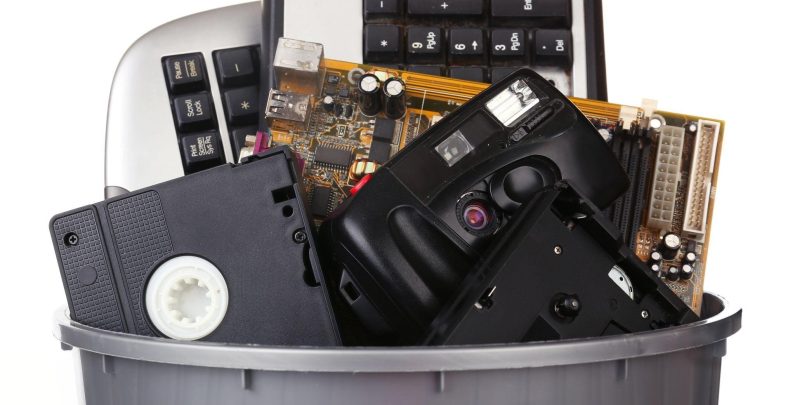
Understanding Electronic Waste and Why it’s Problematic
In recent years, both small and large businesses have increasingly relied on a blend of traditional and digital storage for their confidential documents.
However, the storage and transfer of digital content can pose security risks if not handled with due consideration for data security. Furthermore, the improper disposal of unwanted electronic devices can further exacerbate the risk of a data breach. Hence, it is imperative to securely dispose of your electronic waste to safeguard your business against data breaches.
What Constitutes Electronic Waste (E-Waste)?
Electronic waste, commonly referred to as e-waste, encompasses electronic devices and appliances, ranging from laptops, hard drives, and mobile phones to smart kettles and toasters. E-waste typically includes devices that are no longer functional, require repair, or are considered outdated.
E-waste encompasses both recyclable and non-recyclable items, and distinguishing between the two can be challenging, leading to many of these electronics ending up in regular waste bins. Despite the potential for many electrical items to be refurbished or repaired, they are often disposed of improperly. This contributes to the growing problem of e-waste in Singapore.
While some individuals discard their e-waste in general waste bins, many residents of Singapore recycle e-waste in unsecured containers located in malls. The challenge lies in the fact that these e-waste bins outside supermarkets and other large stores are not effectively regulated, resulting in up to 30% of these containers being filled with non-regulated e-waste [1].
The issue of e-waste is one that the Singaporean government is actively addressing through various initiatives aimed at businesses. Given that Singapore alone generates 60,000 tonnes of e-waste annually, equivalent to 70 phones per person, it is crucial for both individuals and businesses to engage in e-waste recycling practices that are both effective and secure to prevent another problem: increased data breaches [2].
The Importance of Data Security
It is paramount for businesses to protect their confidential information. However, many companies worldwide still do not dispose of their e-waste efficiently and securely enough to minimise the risk of data breaches.
In 2021, data breaches collectively cost several Singaporean businesses a total of $75,000. With the surge in cyberattacks, secure disposal of e-waste is fast becoming a critical practice for all businesses. Many businesses fall into the trap of assuming that merely deleting or wiping an electronic device provides sufficient security before recycling e-waste. However, determined individuals seeking to access your confidential data can still recover it if the device is not permanently destroyed.
As a leading information security company, ZircoDATA can offer secure, safe, and environmentally friendly solutions for managing your e-waste, ensuring that your hard drives and other electronics are not vulnerable to data breaches [3].
Secure E-Waste Recycling with ZircoDATA
Properly recycling e-waste is as vital as securely destroying it. We provide our clients with the assurance that data breaches will be minimised through our Hard Drive Destruction Service.
While hard drives are typically the primary medium for digital storage, data can also be stored on other devices such as CDs, DVDs, floppy disks, zip disks, and USBs. Our Media Destruction Service can help businesses ensure that these alternate media are properly and securely disposed of and recycled, reducing the risk of a data breach.
Regardless of the e-waste destruction method you choose, both services will ensure the secure and permanent disposal of your e-waste, thereby mitigating the risk of data breaches. Once your e-waste is irreparably destroyed, our trusted partners will proceed with the e-waste recycling process, ensuring that your business does not contribute to the growing e-waste issue in Singapore.
Disclaimer: This article is provided for your convenience and does not constitute legal advice. Readers should not take, or refrain from taking, actions based upon the content of this article. Prior results do not guarantee similar outcomes. Please seek professional legal advice.
Source:
[1] Strait Times
[2] Towards Zero
[3] Trust Wave

Recent Comments